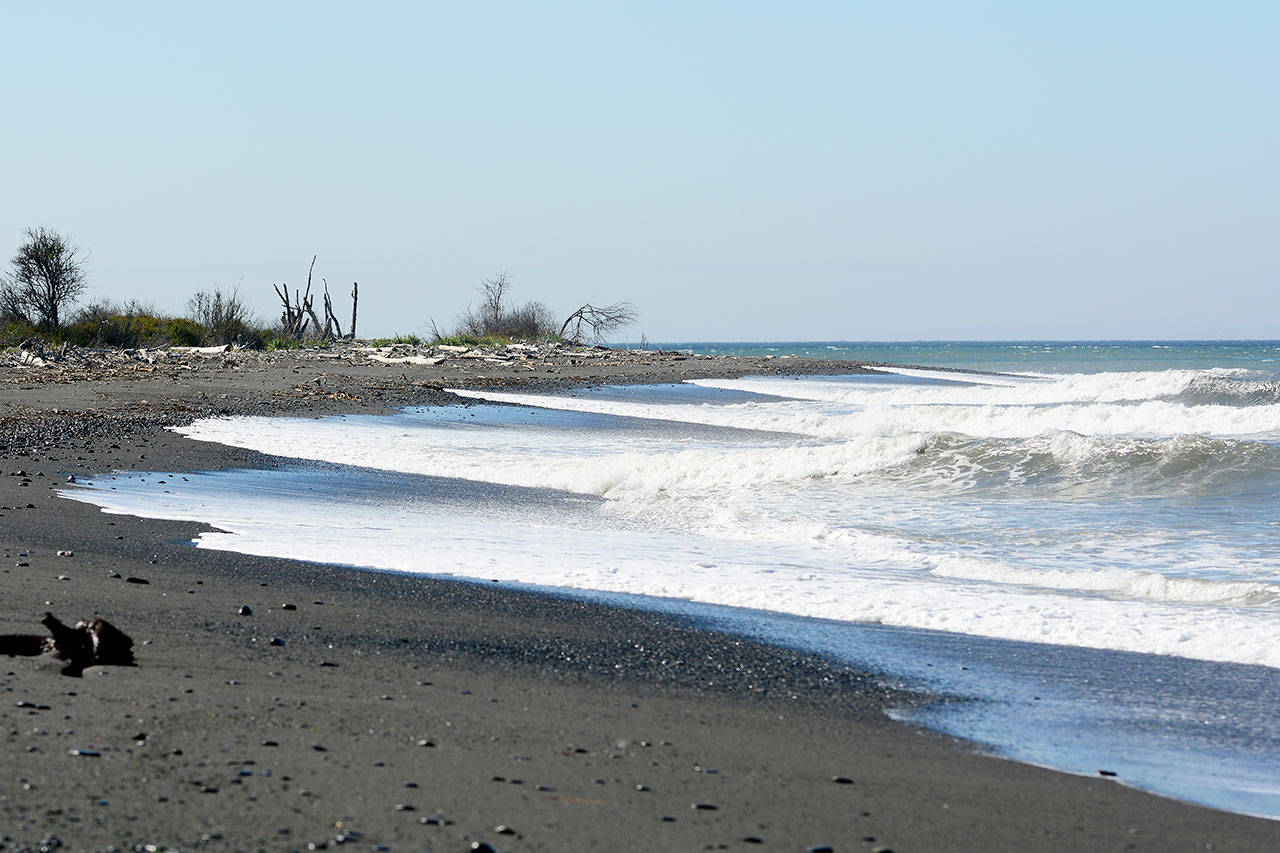PORT ANGELES — Funding that would help the Coastal Watershed Institute continue its restoration efforts east of the Elwha River mouth is delayed as the state Senate has continued to fail to pass a capital budget.
If the budget passes as recommended, state officials said Coastal Watershed Institute (CWI) is due to receive $668,652 in state Estuary and Salmon Restoration Program (ESRP) funding, a program through the state Recreation and Conservation Office and state Department of Fish and Wildlife. The project is the eighth on the list and officials said they expect enough funding for the first 11 projects on the 2017 prioiritized project list.
State Sen. Steve Tharinger, D-Sequim, said Thursday the earliest he sees the budget passing is in September. He was skeptical it would be passed that early and criticized Senate Republicans for linking the capital budget to the recent state Supreme Court ruling known as the Hirst decision.
Though that funding will be used to continue the nonprofit’s restoration efforts, it can’t be used to add infrastructure or to monitor the beach, said Jamie Michel, nearshore restoration biologist.
He had hoped that funding would come from the Puget Sound Partnership (PSP).
But CWI was denied that funding for the second time by a strategic initiative advisory team co-led by the state Department of Fish and Wildlife and Department of Natural Resources.
That funding is from Environmental Protection Agency’s National Estuary Program and is much more flexible than the state funding, Michel said.
The project was listed as PSP’s top habitat restoration effort in the Puget Sound, but its director Laura Blackmore said the list wasn’t intended to be strictly adhered to.
“Our intention was any funder could use that list of projects to fund,” she said.
Kirsten Feifel, strategic initiative co-lead with the Department of Natural Resources said the strategic initiative advisory team decided to fund projects with a focus on education and monitoring, and elected not to fund “high-ticket” items.
Another consideration for CWI’s project, she said, was that it is expected to receive ESRP funding once the capital budget is approved.
“It is the hope of the advisory team that this is going to be funded through the capital budget,” she said. “That is our hope.”
The lack of funding from PSP in its past two grant cycles has left the project about half complete and just over half funded.
In February 2016, the Coastal Watershed Institute and state Department of Ecology received a $1 million grant from the U.S. Fish and Wildlife Service for the Beach Lake Acquisition and Restoration project.
Additional funding came from the state Salmon Recovery Funding Board and PSP, which listed the project as its top priority in a recent ranking.
Michel said that though he anticipates receiving the ESRP funds in the coming months, the nonprofit needs money now to continue the project.
“Our need is now,” he said.
Much of the project is expected to be funded, but Michel was looking for the National Estuary Program funds to help with the education, monitoring and accessibility portion of the project.
Those funds are flexible and can be used to add a parking lot, interpretive signs and fund the monitoring.
He estimated the nonprofit needs another $30,000, which would be matched with $30,000 from U.S. Fish and Wildlife, to fund the parking lot and bathroom planned for the site. He said another $100,000 would likely be needed for the monitoring component.
Michel said he believes the portion of the project that needed the National Estuary Program funding fits in with the criteria the Strategic Initiative Advisory Team set forth.
Michel said efforts will continue throughout the next couple years to remove armoring from the beach.
Anne Shaffer, director of CWI, said she still is skeptical that the nonprofit will receive the ESRP funds. The project is ranked eighth on that list, but wasn’t selected for National Estuary Program funding when it was at the top of PSP’s list.
Officials have assured her the project will be funded with ESRP funds, she said.
“Everybody has told us that,” she said. “There has been nothing in writing, other than verbal assurance.”
________
Reporter Jesse Major can be reached at 360-452-2345, ext. 56250, or at jmajor@peninsuladailynews.com.
